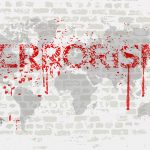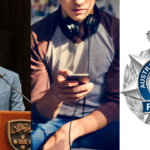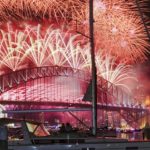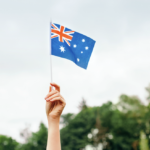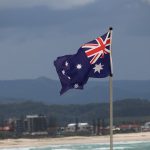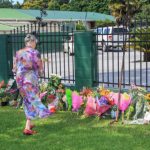Sydney Knife Attacks: A Tale of Two Terrorisms
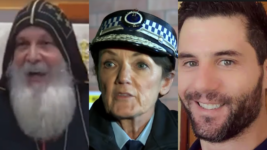
Six people were stabbed to death in a crowded Bondi Junction shopping mall on Saturday afternoon by 40-year-old Joe Cauchi, an Australian of European descent, and whilst he was apparently targeting women, New South Wales police determined the attack was not terrorist in nature.
Yet, when a 16-year-old Muslim boy attacked a priest with a knife in the western Sydney suburb of Wakeley at Christ the Good Shepherd Church on Monday evening, the same law enforcement agency was, within a few hours, able to make the call that this was indeed a terror attack.
The optics these designations result in, however, would appear a little off or exactly as they’ve long sat: a white man not-so-randomly kills strangers and it’s “dismissed” as a crime, while a Muslim teenager, with a yet-to-be confirmed ethnicity, targets a priest and it’s condemned as a terrorism offence.
NSW premier Chris Minns told the ABC’s 7.30 on Tuesday that it’s “important to note that the designation of terrorism is for investigative purposes”, as it provides for greater policing powers.
So, this means while the state still remains uncertain as to whether the Wakeley attack is terrorism, old tropes have now been set in motion once again in the community.
And the premier only explained this designation on the ABC on Tuesday evening, an entire day after NSW police commissioner Karen Webb had stayed up until as late as 1.30 am that morning to determine the 16-year-old Muslim boy, who’d acted alone, was a terrorist.
The terror equation
Section 3 of the Terrorism (Police Powers) Act 2002 (NSW) defines a terrorist act as an action done with the intention of advancing a political, religious or ideological cause via coercing or influencing by intimidation a government, part of a state or the public or a section of that.
This Act is the legislation containing those beefed-up powers Webb’s late-night designation unlocked and, as Minns underscored on the ABC, had been the right call to make.
In terms of unlocked powers, part 2AA division 2 of the Act, permits the detention of a terror suspect uncharged and as young as 14, under its investigative detention protocols, for up to 4 days, or once warrants are applied by senior officers, we’re talking up to 14 days, with no outside contact.
The Act was rolled out by the Carr government in the wake of the 2002 Bali Bombings, which killed 88 Australians, and as well, and not less significantly, the 2001 9/11 attacks in New York.
UN Security Council Resolution 1373 of late September 2001 encouraged all member states to draft such terror laws with accompanying penalties reflecting the seriousness of charge.
However, Australia, a nation with a dearth of human rights protections, has since passed 100 such pieces of legislation at the federal level, and the nation now lives, somewhat naively, under a framework of these rights-eroding terror laws.
And while terror laws impinge upon all living here, they’ve impacted Muslim communities most dramatically. And as the written laws don’t discriminate between religious, political or ethnic backgrounds, the criminal justice system, it would appear, is applying them prejudicially.
Indeed, as long-time commentator on this issue Randa Abdel-Fattah put it on X on Tuesday, “terrorist is the automatic signifier for Muslim”, and the individual’s “violence, tactics, motives” and their “victims are irrelevant”.
“The label ‘terrorist attack’ is applied to an individual but has a material impact on a collective,” said the Australian academic and author of Palestinian and Egyptian descent, as she describes a common association that’s existed in the public mind for decades.
And the noted author adds that in regard to the identity of the Bondi stabber, “once a white non-Muslim was confirmed” any potential terrorism link flew out the window.
White men can’t terrorise
Of course, the public remains unaware as to all the details behind both public Sydney stabbing incidents, and it will likely remain that way.
But what is known is that NSW police, with the backing of the government, has designated the Wakeley incident terrorist in nature, although perhaps not.
Meanwhile, a 40-year-old white man killed five women and a male security guard in a shopping centre, and NSW police is confident enough to say that it appears he was targeting women, while his father told the BBC that his son “was frustrated out of his brain” about not having a girlfriend.
Now, misogyny is not considered an ideology. But as the White Rose Society has pointed out on X, incels are men holding to a violent misogynistic ideology that self-identify with this.
And despite NSW police not considering it worth inquiring into, the Institute for Strategic Dialogue provides an explainer defining the ideology and its followers.
Incel stands for the involuntary celibate, and these are men who find themselves unable to form meaningful romantic relationships with women, and they blame women for this.
Incels also have their own terminology, like manosphere, which refers to their “interconnected communities online”.
“The manosphere, especially incels, has been affiliated with acts of violence” ISD explains. “Incel-related violence is increasingly regarded as a form of terrorism – in Canada, for example, the perpetrator of a fatal stabbing was charged with terrorism offences.”
Yet, the parochial NSW Police Force is obviously unaware of such phenomena, despite University of Exeter academics warning in 2022 that the “male supremacist” movement is growing, as there had been an eightfold increase in extremely degrading and violent posts online over the six years prior.
And mass killings attributed to incels, or men active in the incel space, have been identified also in the US and the United Kingdom.
Two lawbreaking frameworks
Cauchi has a history of mental health issues and has been living an itinerant lifestyle, and NSW police consider that description is enough to explain away why he targeted women in public.
This is despite incels being a rising phenomenon and that these men are usually associated with far-right ideologies.
Indeed, since the COVID pandemic, ASIO director general Mike Burgess has been warning that his domestic spying agency has seen its terror-related workload increasingly focused on far-right white supremacist elements, and this has been by up to 30 to 40 percent over the last half decade.
Yet, as he was being questioned by the press on Tuesday, Burgess agreed that both incidents were lone wolf attacks, of which he was able to “pretty quickly rule”, as a journalist put it, one was terrorist in nature and the other wasn’t fuelled by ideological or religious motivations.
“In the case of Saturday, that was not the case,” the top spy explained, following the church attack. “In this case, the information we and the police have before us, it would indicate strongly that that is the case and that’s why it was called an act of terrorism.”
Although, for a 16-year-old to present at the front of a globally televised sermon taking place in a Christian church and then commence stabbing the priest, does not necessarily indicate that the minor was acting in a manner that reflects a sound mind.
And some other outstanding questions left unanswered in the public sphere consist of whether a lone wolf designation can include an assailant who’s been communicating with other likeminded actors online, and it’s still unknown as to whether either of the stabbers had been doing so.
But one thing has clearly been reaffirmed this week and that is, as Abdel-Fattah asserts, a terrorist act appears to signify a violent breaking of the law by a Muslim, while even though white people of European descent might perpetrate a mass killing, it’s only ever a criminal act.


